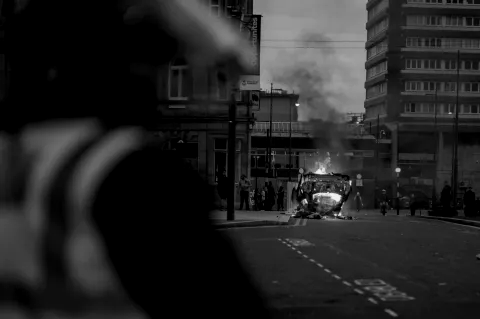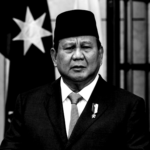On Saturday, violent unrest erupted in several British cities, injuring police officers and causing significant property damage, marking the most extensive rioting in the UK in 13 years. This surge in violence followed the murder of three young girls in northwest England. The disturbances, driven by hundreds of anti-immigration protesters, were fueled by misinformation that spread quickly on social media, falsely claiming that the suspect in Monday’s knife attack at a children’s dance class in Southport was a radical Muslim migrant.
Police have stated that the suspect, Axel Rudakubana, 17, was born in Britain. Despite this, protests led by anti-immigration and anti-Muslim demonstrators have persisted, escalating into violence, arson, and looting. Unrest has spread to Liverpool, Bristol, Hull, and Belfast—cities across different parts of the UK—where clashes occurred, with bricks and bottles being thrown as anti-immigration protesters confronted anti-racism groups.
Prime Minister Keir Starmer, facing his first major challenge since his election a month ago, has condemned the “far-right” for inciting the recent wave of violence and has supported the police in taking decisive action. He discussed the unrest with senior ministers on Saturday, according to his office.
The last significant riots in Britain occurred in 2011, when a larger-scale outbreak of violence spread across five nights after police fatally shot a Black man in London.
On Friday night, hundreds of anti-immigration protesters in Sunderland clashed with police near a mosque, throwing stones, overturning vehicles, setting a car on fire, and igniting a blaze near a police station.
Mark Hall, chief police superintendent for Sunderland, described the events as “unforgivable violence and disorder,” emphasizing that it was not a legitimate protest. Additional demonstrations are planned for Sunday.
Source: Reuters





